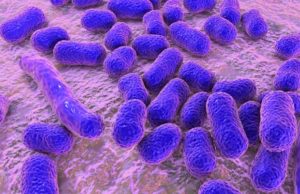Believe it or not, eggs have been a topic of great debate among health specialists lately, namely due to concerns over their cholesterol content. While the United States’ Department of Agriculture’s current Dietary Guidelines for Americans maintains that eggs are an outstanding source of dietary protein, recent research published in the Journal of the American Medical Association in 2019 established a link between eggs and an increased risk of heart disease and a shorter lifespan. Are eggs actually worthy of their health halo, you may ask? Many concerned breakfast lovers are not aware, however, that this newfound link between eggs and cardiovascular disease hinges on someone eating upwards of a dozen eggs in a single week; so unless you’re consuming three or four eggs every day, don’t go throwing out your cartons just yet.
One of the best sources of protein available in your kitchen, eggs are chock-full of essential nutrients such as vitamins A, D, B12, and an under-the-radar essential known as choline. They’re also an inexpensive and versatile staple, so don’t let misconceptions about cholesterol or saturated fats stop you from making them for breakfast, brunch, or Brinner! We’re highlighting the best health benefits associated with eggs below. Plus, we’re tackling all of the chatter around eggs with a list of FAQs — including what you really need to know about egg whites.
Egg Nutrition Stats
A large egg contains the following, according to the USDA:
- 72 calories
- 0g carbohydrates
- 6g protein
- 5g total fat
- 1.5g saturated fat (8% DV)
- 0g fiber
- 0g sugar
- 69mg potassium (1% DV)
- 6mg magnesium (1% DV)
- 28mg calcium
- 0.8mg iron (3% DV)
- 99mg phosphorus
- 0.08mg vitamin B6 (5% DV)
- 0.45 mcg vitamin B12 (10% DV)
- 270 IU vitamin A
- 41 IU vitamin D (11% DV)
What are the health benefits of eating eggs?
They boost brain health. Eggs are chock full of choline, an essential nutrient crucial for healthy memory, mood, and muscle control, says Michelle Hoeing Bauche, MS, RDN, a clinical dietitian in the bariatric services division of the University of Missouri Health Care system. “Choline is in the B vitamin family … and is fairly ‘new’ compared to other nutrients that have been studied and researched,” she says. “Consuming choline through foods like eggs may actually help to prevent things like cardiovascular disease, early brain dysfunction such as dementia, and fatty liver disease.”
But you won’t get choline’s health edge by simply taking supplements; Bauche says that some research shows that choline on its own doesn’t have much of an effect on preventing these conditions, most likely “because most nutrients act synergistically with one another and rarely alone.” Your best bet is to incorporate choline-rich foods into regular rotation in the kitchen. Eggs and other dairy items are the best source, Bauche says, followed by beef liver, shiitake mushrooms, fatty-rich salmon, and beans, legumes, and cruciferous vegetables on a smaller scale.
They safeguard pregnant women. During pregnancy, choline intake is critical for fetal brain development and can help prevent birth defects. “Research suggests that as many as 90 percent of pregnant women may not be consuming adequate amounts of choline,” Bauche says, adding that clinical studies have found that pregnant women who eat upwards of 900mg of choline (double the recommended daily intake) may boost cognitive development in their children later on. “While most people are aware that folate plays a role in preventing neural tube defects, choline actually plays an equally important role, since it also aids in the synthesis of cell membranes and neurotransmission.” Two large eggs contain more than 50% of the recommended choline intake for pregnant women. Vitamin B12 is another essential nutrient required for red blood cell formation, neurological function, and DNA synthesis. B12 is almost exclusively found naturally in animal products, so if you’re vegetarian, eggs can help meet your B12 needs.
They can help manage weight loss over time. Research has linked meals higher in protein to keeping you fuller, longer. Published in the Journal of the American College of Nutrition, a 2004 review suggests that protein-rich foods (including eggs!) is the most filling option available at mealtime, even with smaller portions compared to other nutrients. Plus, lean protein like eggs are lower in calories than higher-fat cuts of meat and poultry.
They can preserve vision and eye health. Eggs also contain a crucial chemical compound known as carotenoids that are normally found in fruits and vegetables — and these nutrients can help boost the immune system over time, according to Anne-Marie Gloster, Ph.D., R.D., a lecturer in the nutritional sciences program at the University of Washington. “Carotenoids are the chemical compounds which produce the yellow, orange, and red colors in fruits and vegetables,” she shares, adding that eggs contain a class of carotenoids known as xanthophylls. “The two xanthophyll compounds found in these carotenoid rich foods are lutein and zeaxanthin; they are more of the yellow pigments in our foods. Egg yolks contain these xanthophylls … And the color of [the] yolk is dependent on the feed of the chicken and whether their diet included carotene-rich foods.”
The lutein and zeaxanthin found in eggs play a role in maintaining eye health; research published in 2019 shows that lutein in particular may impact cognition in both children and adults. Gloster shares that these pigments allow our eyes to naturally filter blue-light emissions from computers and televisions; research has suggested that these compounds may even help prevent declining vision into old age and cataracts themselves. And while eating a balanced diet usually provides more than enough of these chemical compounds for your body to absorb, Gloster says eggs provide far more immediate benefit than most leafy vegetables. ” Because eggs also contain fatty acids, the lutein and zeaxanthin is more bioavailable, more easily absorbed, than the richer vegetable sources of carotenoids.”
They can build healthier bones. Eggs are one of the few natural sources of vitamin D, which helps with absorbing calcium, maintaining healthy bones, promoting neuromuscular function, and reducing inflammation. “Other essential nutrients and vitamins found in eggs include DHA (higher amounts from pasture-raised chickens), other B vitamins, fat-soluble vitamins A, D, E, and K,” Bauche says. “The trace minerals iodine and selenium are often forgotten about or not usually consumed in sufficient amounts, but they do play a role in brain development, thyroid function, and liver function.”
Getty Images
Are eggs a good source of protein?
Eggs are a complete protein, containing all 9 essential amino acids necessary to rebuild muscles and tissues in our bodies. Depending on size, one egg has anywhere between 5 to 8 grams of protein and nearly everything in our bodies requires protein. That makes a constant supply of the essential amino acids, well, essential!
Do eggs raise your cholesterol?
Current evidence indicates that dietary cholesterol does not automatically raise our blood cholesterol, meaning eating moderate amounts of eggs does not appear to affect disease risks in most healthy people. A recent review of previously published studies, published in JAMA by a team of researchers at Northwestern University, suggests that eating more than 3 eggs a week may raise risk of heart disease by upwards of 25%. But many experts have conceded that dietary cholesterol isn’t as damaging to long-term health as saturated and trans fats, which can have a more serious effect on blood cholesterol. The 2015–2020 Dietary Guidelines for Americans as well as the American Heart Association, the American College of Cardiology, and the American Diabetes Association have thus removed their previous recommendations to limit dietary cholesterol. The bottom line? Eating eggs in moderation is key, especially if you already suffer from high cholesterol — a six-egg omelet daily will have an immediate effect on your cardiovascular health, but an egg or two can definitely be part of a healthy breakfast.
Are brown eggs healthier than white eggs?
Nope! The color of an egg is not an indicator of quality, nutrition, or taste. Rather, the color depends on the breed of the hen, Bauche says. White-feathered hens lay white eggs, while brown-feathered hens lay brown eggs. If you’re wondering why brown eggs often cost more, it’s simply because brown-feathered hens are bigger and more expensive to raise.
Should I only eat egg whites?
If you eat eggs more than once a day (vegetarians and flexitarians, listen up!), swapping in egg whites in place of whole eggs could be a great way to enjoy their flavor profile while dodging extra cholesterol. But don’t cut out whole eggs if you enjoy them occasionally throughout the week. The yolks contain most of the essential nutrients, and the fat in them helps your body absorb those. Plus, the yolk holds 40% of the protein found in eggs in the first place.
How many can I eat and what should I eat them with?
Current health guidelines show that eating one to two eggs per day does not have detrimental health effects. They can safely stay in your refrigerator without a loss of quality for three to five weeks after purchase, making eggs a great staple for so many quick and nutritious meals. Use them in:
- Veggie scrambles or frittatas
- Avocado toast
- Savory oatmeal
Getty Images
Help! What do all these labels mean?
Label claims can be confusing. Here’s what all of those designations actually say.
Cage-Free: According to the USDA, cage-free hens must be housed in a building, room, or enclosed area with unlimited access to food and water. Cage-free does NOT mean that the hens have access to the outdoors.
Free-Range: Free-range hens must be housed in a building, room, or area with unlimited access to food and water. However, these hens must have continuous access to the outdoors during their laying cycle. This outdoor area may be fenced (in a backyard or garden if raised on a heritage farm!) and/or covered with netting.
Pasture-Raised: This term is not currently regulated by the USDA, but pasture-raised eggs should mean that the hens spend most of their life outdoors, with a fair amount of space to roam in addition to barn access. The hens can eat a diet of worms, insects, and grass, along with their feed, which replicates a chicken’s natural diet and environment. Look for the HFAC’s Certified Humane Label.
Farm-Fresh or All-Natural: These labels aren’t subject to federal regulation, nor do they have specific meaning. They’re often used for marketing purposes, per the USDA.
No Hormones Added: Contrary to popular belief, the egg industry does NOT use hormones in the production of shell eggs, no matter if the label says this or not.
Antibiotic-Free: Similarly, all eggs produced in the U.S. are antibiotic-free, even if it’s not specified on the carton. If hens become ill, a veterinarian can administer antibiotics, but these eggs would not be used for human consumption, according to FDA regulations.
Vegetarian-Fed: According to USDA rules, the egg producer using this claim must maintain documentation that the source hens do not eat any animal byproducts. However, chickens in the wild are omnivores (i.e., not vegetarian) and get most of their protein from worms and insects.
Gluten-Free: All eggs are naturally gluten-free. If the hens producing the eggs are fed a gluten-containing grain, the gluten is broken down during digestion and not passed on to the eggs.
Organic: In order to certify eggs as “organic,” the hen’s feed must be grown without most synthetic chemicals. 100% of the ingredients must be certified organic, the hens must be free-range, and the use of antibiotics and growth hormones are prohibited. Management must present supporting documentation from an accredited certifying agent to the USDA to verify that the flock is organic.
Zero Trans Fats: This claim indicates that an egg contains less than 0.5 grams of trans fatty acids, which is true of all eggs.
AA, A, or B: You may have noticed that eggs are graded as AA, A, or B, in descending order of quality. According to the USDA and the American Egg Board, there is no difference in nutritional values. Grading is based on standards of appearance, such as the conditions of the white or yolk and the cleanliness and soundness of the shell.
Get Cracking on Breakfast
45 Egg Recipes That Are Anything But Scrambled
For can’t-miss news, expert beauty advice, genius home solutions, delicious recipes, and lots more, sign up for the Good Housekeeping newsletter.
Subscribe Now











